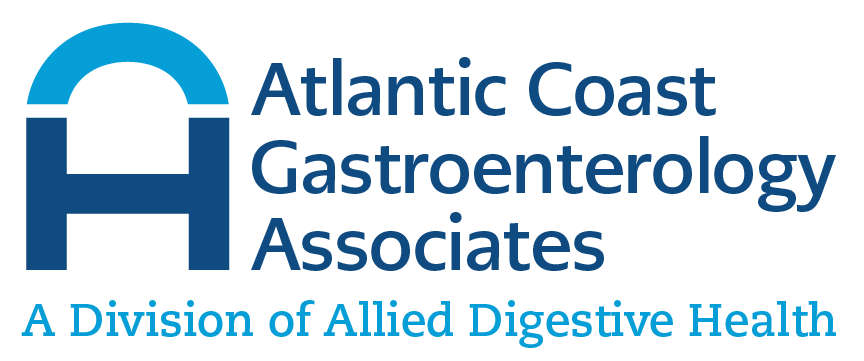
- December 8, 2022
Heartburn is fairly common, and you may have experienced it at some point. According to the American College of Gastroenterology, at least 15 million Americans experience heartburn symptoms each day. However, having frequent and severe heartburn could indicate GERD, a chronic acid reflux condition. Always consult your doctor if you have any concerns.
Heartburn usually feels like a burning sensation in the center of your chest, just behind your breastbone. The burning sensation may travel up your neck and throat, lasting a few minutes to several hours. It often feels worse after eating or if you lie down too soon. Keep reading to learn more about its symptoms and treatment.
Heartburn Symptoms
Heartburn usually manifests as a burning feeling in the center of your chest, behind your breastbone. When you have it, you may experience the following symptoms:
- Burning sensation in your chest that may go up to your throat
- Hot, acidic, sour, or salty taste in your mouth
- Burning sensation in the center of your chest
- Burning, indigestion-like pain in the stomach
- chest pain when you lie down or bend over
- swallowing difficulties
Some heartburn symptoms, such as chest pain, may be the same as those of a heart attack. Therefore, people with a heart attack may avoid seeking medical attention, believing they are suffering from it.
Someone with heartburn pain, sweating, and shortness of breath could have a heart problem. A heart attack can also have symptoms like squeezing, pressure, pain in the chest, nausea, and lightheadedness.
If someone experiences a few or all of these symptoms, they should seek immediate medical attention. Knowing the difference between heartburn and a heart attack can save many lives.
Heartburn Causes
Heartburn occurs when acidic stomach contents move up the food pipe. When you eat, food travels down the esophagus, a long pipe connecting your mouth and stomach. At the bottom of the esophagus is the esophageal sphincter, a valve that opens to let food into your stomach and closes to keep it there.
When food gets into your stomach, it mixes with acidic stomach contents that break down the food. When the esophageal sphincter fails to close properly, reflux occurs. Acid reflux occurs when some of your stomach’s acidic mixtures travel up your esophagus. Heartburn, which causes a burning feeling, is a common symptom of acid reflux.
It can be a result of the following:
- Pregnancy
- Hernia Hiatal
- Gastroesophageal reflux disease (GERD)
- Medications containing aspirin and some anti-inflammatory medications
- Obesity or being overweight
Other serious conditions, such as Barrett’s esophagus, esophagitis, and even esophageal cancer, can result from GERD. Seek medical attention immediately if you have persistent and severe heartburn symptoms.
The types of foods you eat, the size of your meals, and some lifestyle habits can also trigger it. Common foods that can trigger heartburn include:
- Chocolate
- Fried foods
- Citrus fruits
- High-fat foods
- Tomatoes and tomato-based products
- Peppermint
- Spicy foods
- Carbonated drinks
- Alcohol
Try to reduce the amount of these foods in your diet and avoid eating too much too close to bedtime to prevent heartburn.
Heartburn Treatment
You can treat heartburn at home with over-the-counter medications and changes to the lifestyle habits that cause it. However, if the cause is a more severe medical condition like GERD, you may need prescription medicines.
Common heartburn treatments include:
- Antacids
- Proton pump inhibitors
- H2 blockers
Antacids
These reduce the amount of stomach acid production, thereby relieving heartburn. Antacids such as Tums®, Rolaids®, and Gaviscon® are available over the counter. But if your symptoms persist, your doctor may recommend much stronger prescription antacids.
Some antacids contain laxatives such as sodium bicarbonate or magnesium. If you have bowel inflammation or appendicitis, avoid taking antacids. An overuse or overdose of antacids can have very serious side effects.
H2 Blockers
H2 blockers, also known as acid blockers, block stomach acid production. They alleviate indigestion, acid reflux, and heartburn. Common over-the-counter acid blockers include AC® Pepcid and Tagamet® HB.
Keep taking your acid blocker medication as directed, even when your symptoms improve or you do not feel pain. Your doctor may recommend prescription-strength acid blockers like Zantac®, and Axid®, when OTC medications fail to work.
You may need to take antacids alongside acid blockers in some cases. Antacids will relieve your symptoms until the acid blockers start working. Take both antacids and acid blockers an hour apart if you take them.
Proton Pump Inhibitors (PPIs)
PPIs work by decreasing the amount of acid in your stomach. They can also aid in the healing of damaged esophagus tissue. Examples of PPIs include esomeprazole (Nexium 24 HR) and Lansoprazole (Prevacid 24 HR.)
These medications can be beneficial, but they can have side effects. PPIs and H2 blockers can cause diarrhea, headaches, and stomach upset. Discuss any medications you’re already taking with your doctor to see if you’re at risk for drug interactions.
When to See a Gastroenterologist Concerning Your Heartburn
Heartburn is common, but it can sometimes cause more serious health issues. Chronic heartburn has been linked to Barrett’s esophagus, esophageal inflammation, chronic cough, and respiratory issues. All these issues, if left untreated, may result in esophageal cancer.
Contact a gastroenterologist if:
- It is not going away
- It makes you vomit
- The symptoms worsen or increase in frequency.
- The discomfort is affecting your daily life.
- Swallowing becomes very painful.
- Symptoms persist after using OTC antacids for longer than the label suggests.
- Symptoms persist after using a prescription.
- You experience sudden weight loss
- You suffer from severe wheezing or hoarseness.
Contact a Gastroenterologist Today
Many people experience occasional heartburn. But if you experience it very often and the symptoms worsen, it could be a sign of an underlying medical condition. Without treatment, it may not go away in these cases. Consult a gastroenterologist to develop a treatment plan.
Contact one of our Care Centers today for a high-quality and comprehensive diagnosis and treatment for heartburn and gastrointestinal disorders. Our team of board-certified gastroenterologists and other paramedics will work with you to provide the best care possible.
Footer
Quick Links
Locations
Brick Office
732-458-8300Brick Medical Arts Building
1640 Route 88, Suite 202
Brick, New Jersey 08724
Neptune Office
732-776-9300Jersey Shore Medical Arts Building
1944 Corlies Ave. Suite 205
Neptune, New Jersey 07753
Jackson Office
732-928-2300706 Bennetts Mills Road
Jackson, New Jersey 08527
© All Rights Reserved
